ARTICLE AD BOX
Nikos Papanikolaou & Rachel Hagan
Patras & London

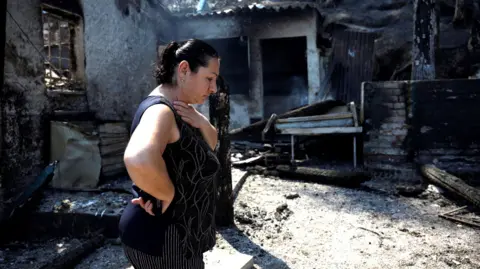 Reuters
Reuters
The fire destroyed a tavern in Kaminia, near Patras
A major city in western Greece is under threat from fast-moving wildfires as extreme heat and strong winds drive blazes across much of southern Europe.
Searing winds pushed flames into the outskirts of Patras, the country's third-largest city with a population of around 200,000, forcing evacuations including a children's hospital, and sending plumes of smoke across the skyline.
Nearly 10,000 hectares have burned in the surrounding Achaia region in two days.
Entire villages have been emptied, homes and businesses destroyed and hundreds of vehicles incinerated, including more than 500 cars at a customs yard.

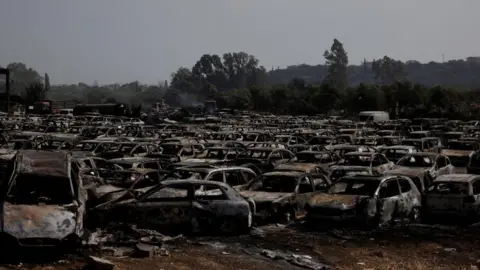 Reuters
Reuters
Over 500 vehicles at a customs yard in Patras were incinerated
The streets of Patras were deserted on Wednesday, save for some residents watching in silence as the fires descended from the surrounding mountains.
Strong and scorching winds blew as temperatures hit 38C and smoke has blanketed the city, sending some to hospital with breathing difficulties.
Authorities ordered residents of a nearby town of 7,700 people to evacuate on Tuesday and fresh alerts were issued on Wednesday for two villages.
Elsewhere in Greece, dozens of people were rescued by coastguards as fires inched towards beaches on the islands of Zante and Chios.
Greece has requested EU water bombers to bolster the more than 4,800 firefighters tackling the more than 20 wildfires currently raging across the country.

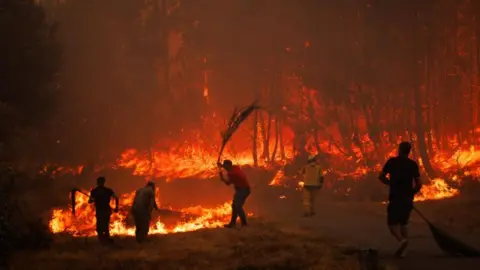 EPA/Shutterstock
EPA/Shutterstock
In Portugal, 1,800 firefighters have been deployed against five major blazes
The crisis comes as a heatwave blankets southern Europe, sparking blazes from Portugal to the Balkans.
In Spain, a civilian and a volunteer firefighter were killed on Wednesday during the country's tenth consecutive day of extreme heat, which peaked at 45C the day before.
The state weather agency warned almost all of Spain was at extreme or very high fire risk. The heatwave is expected to last until Monday, making it one of the longest in the country on record.
The fires have triggered a political row after transport minister Oscar Puente said that "things are getting a little hot" in Castile and León, where flames have threatened a world heritage Roman site and forced more than 6,000 people to flee.
His remark, aimed at the region's conservative leader for holidaying during the crisis, drew condemnation from opposition figures, who demanded his dismissal. Puente defended his comments, saying leaders absent during disasters should be held to account.

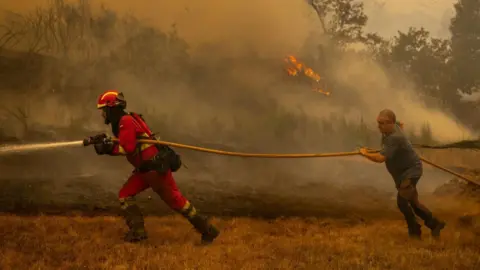 EPA/Shutterstock
EPA/Shutterstock
Authorities say 199 wildfires have destroyed nearly 99,000 hectares nationwide this year - double last year's total by mid-August - with several outbreaks suspected to be arson.
In neighbouring Portugal, 1,800 firefighters have been deployed against five major blazes, including one in the eastern town Trancoso reignited by lightning.
In Albania, the defence minister called it a "critical week" as 24 wildfires burned, forcing residents from central villages.
Italy has brought under control a five-day blaze on Mount Vesuvius but remains under extreme heat warnings in 16 cities, with Florence touching 39C. Temperatures are at such a high that Pope Leo moved his weekly audience from St. Peter's Square to an indoor venue in the Vatican.
Britain entered its fourth heatwave of the summer, with temperatures forecast to peak at 34C and health officials warning of a strain on care services.
Meteorologists say such extremes are becoming more frequent and intense due to human-induced climate change.

 2 hours ago
7
2 hours ago
7

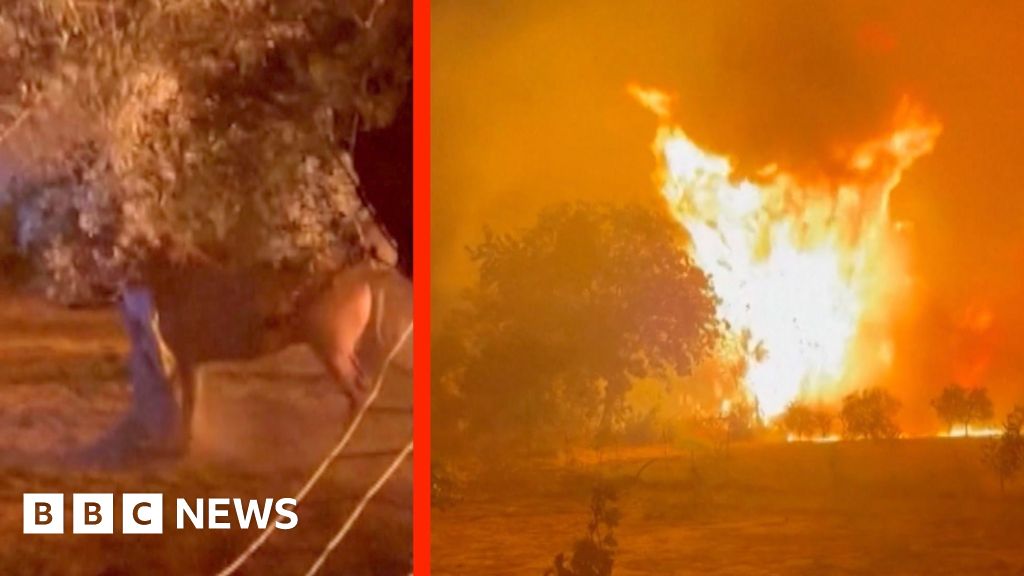
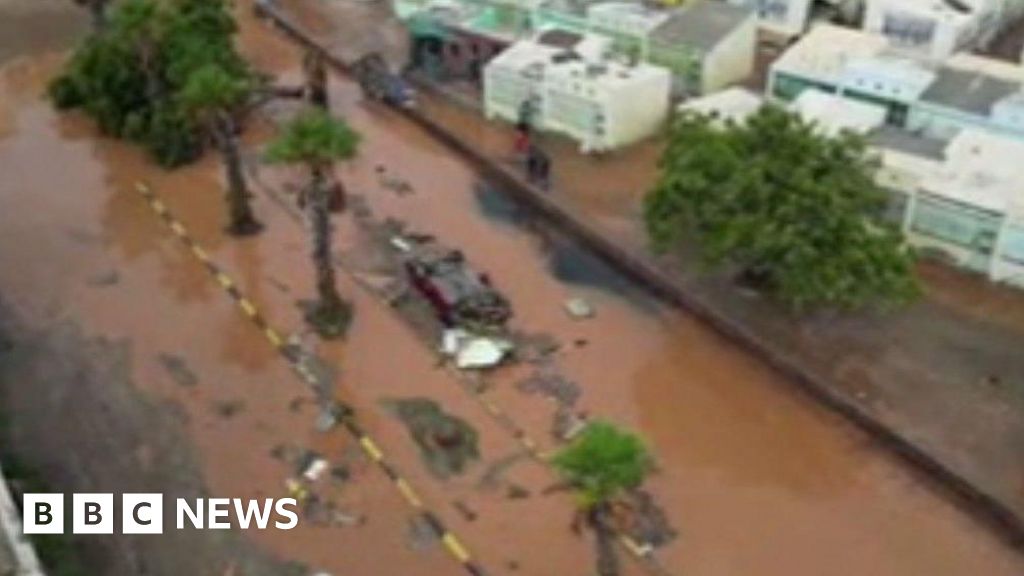





 English (US) ·
English (US) ·